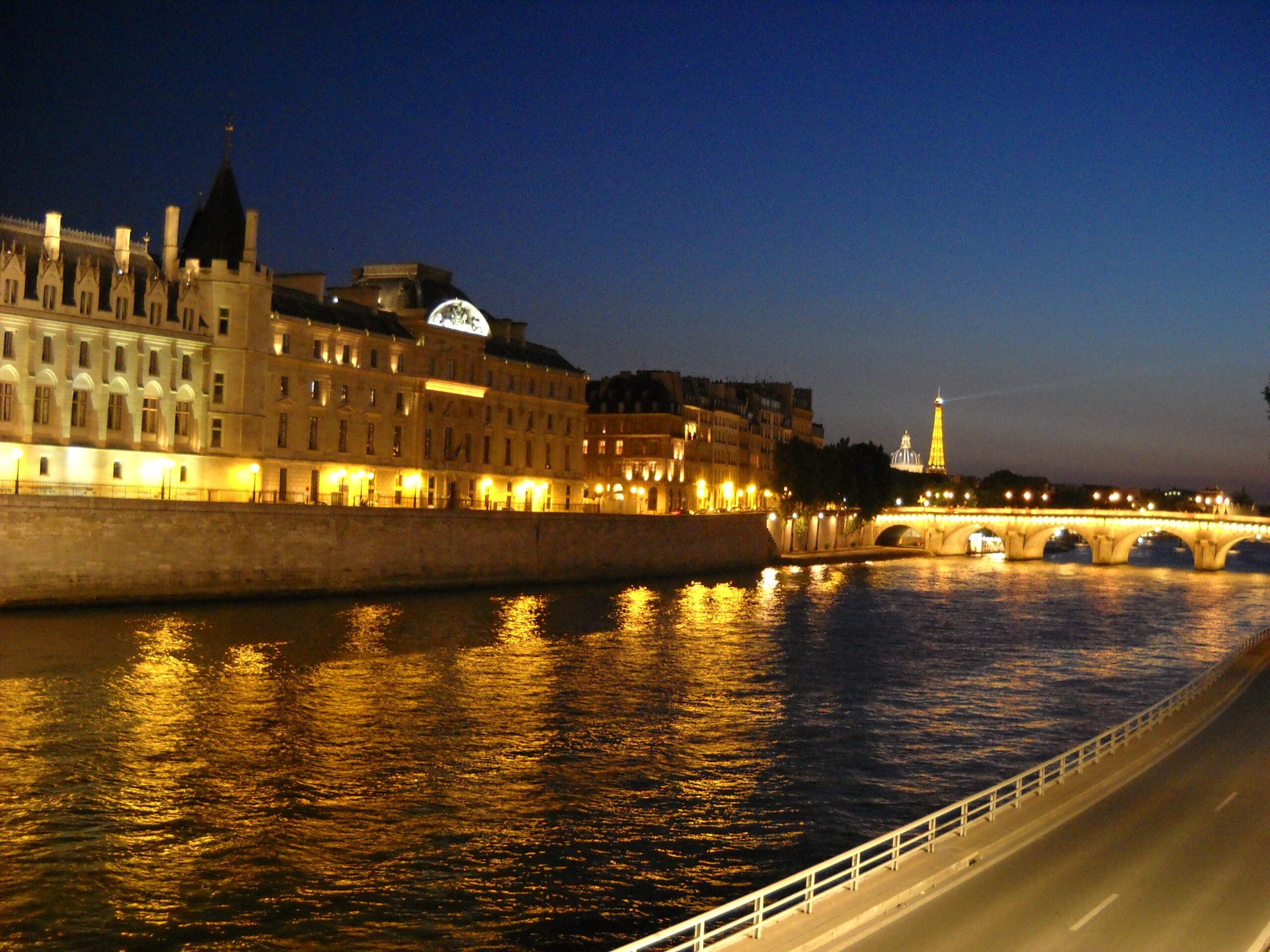
Davide Martino's research on waterborne festivals chimes with the opening of the Paris Olympics
In the nineteenth century, like many other European cities, Paris cut itself off from its river by building huge embankments. With these Olympic Games, the city is reclaiming the waters of the Seine as an urban space.
Davide Martino
The opening ceremony of the 2024 Olympic Games today will see athletes from around the world cross the centre of Paris on boats, navigating the waters of the river Seine, using it and its banks as life-size stages.
Although the ceremony is being billed as innovative, it is in fact part of a centuries-old tradition of waterborne festivals, according to new research which explores the parallels between urban highways and waterways, or ‘liquid streets’.
The article, Liquid streets: early modern waterways in urban spaces, has just been published in the edited volume The Street in the Urban Structure (Porto: CITCEM, 2024) and is based on lead author Dr Davide Martino’s PhD research as a Gates Cambridge Scholar at the University of Cambridge.
It looks at similarities between highways and waterways, such as their function in transporting goods and people between their locations within urban spaces and between the institutions and structures set up for their administration. It shows how waterways went beyond highways in function, location and administration, being more efficient for the transportation of goods and requiring more sophisticated types of administration which led to more complex forms of social and political organisation.
The article cites several examples of waterborne city festivals that compare with the Paris Olympics. They include the 1589 celebrations of the wedding of Grand Duke Ferdinando I de’ Medici with Christine de Lorraine, in Tuscany, during which a mock naval «Battle of the Galleon» between Christians and Moors was organised on the river Arno, in Pisa, followed by a more exclusive re-enactment inside the courtyard of the grand-ducal palace.
It concludes that, while we could understand urban rivers as “liquid streets”, we should go even further and talk of «solid rivers» when thinking about streets.
Davide [2019], who did his PhD in History and is currently doing a postdoc in architectural history at the Universität Bern, in Switzerland, says his research has “very concrete implications for the present, and for ensuring that we can continue to hold water in shared and sustainable possession with fellow humans”.
He adds: “The role which the Seine will play in the Paris Olympics is very exciting. As well as hosting the opening ceremony, the river will also see athletes competing for the open swimming, triathlon and paratriathlon races. The huge cost of the clean-up programme has received criticism, but we can see it as the healing of a rift which is over a century old. In the nineteenth century, like many other European cities, Paris cut itself off from its river by building huge embankments. With these Olympic Games, the city is reclaiming the waters of the Seine as an urban space.”
*Picture credit: the Seine by Savani1987. Courtesy of Wikimedia Commons.












